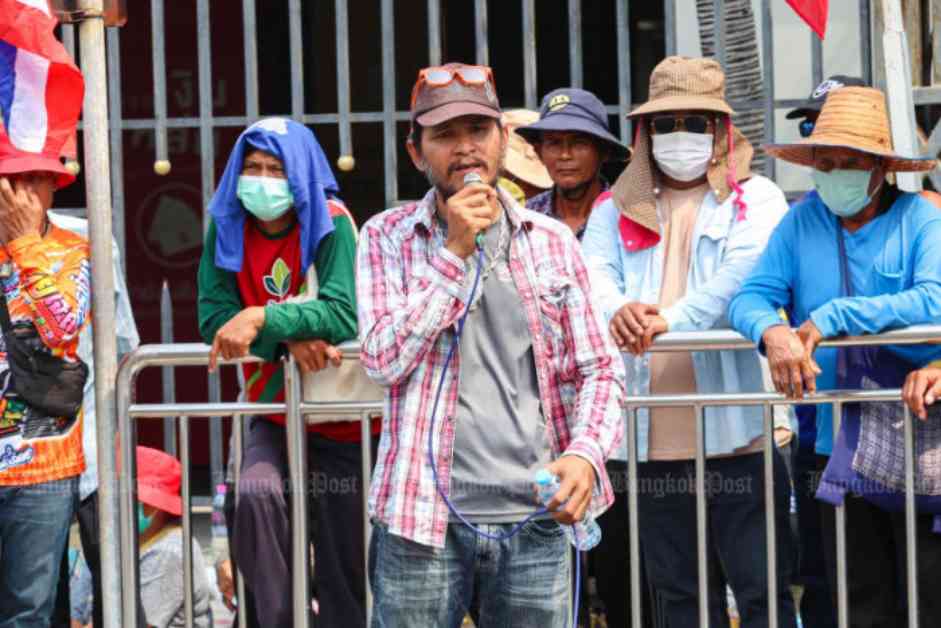Thai rice farmers are facing a challenging time as paddy prices plummet, creating hardships for those in the agricultural sector. In a bid to address the concerns of rice growers in the country, the Thai government has introduced measures to support farmers during this difficult period. However, the effectiveness of these measures is being called into question, with some farmers expressing dissatisfaction with the government’s response.
Thitiwat Kleepmalai, a farmer leader from Sena district in Ayutthaya province, recently voiced his disappointment with the government’s efforts to assist rice farmers. Despite the implementation of measures aimed at stabilizing paddy prices, many farmers feel that the support provided is inadequate. The current average price of paddy stands at around 8,600 baht per tonne, a significant decrease from previous years, placing financial strain on farmers across the country.
In response to the declining prices, the government announced a package of measures worth 1.89 billion baht, including initiatives such as offering loans to farmers to delay paddy sales and covering storage fees for rice mills. These measures are designed to prevent paddy prices from falling below the 8,000 baht per tonne threshold. However, some farmers, including Thitiwat Kleepmalai, believe that more decisive action is needed to address the challenges faced by rice growers.
Challenges Faced by Thai Rice Farmers
The difficulties encountered by Thai rice farmers are multifaceted, with factors such as climate change, unsustainable farm debts, and a lack of innovation contributing to the crisis. Despite significant government subsidies over the past decade, the traditional rice cultivation system in Thailand is under strain, necessitating urgent intervention to safeguard the livelihoods of farmers. Thitiwat Kleepmalai and other farmer leaders are advocating for greater support from the government to ensure the sustainability of the agricultural sector.
The Road Ahead for Thai Rice Farmers
As the world’s largest rice exporter, Thailand plays a crucial role in the global rice market. However, the resumption of rice exports by India, the leading exporter of rice, poses a challenge to Thailand’s position in the industry. With an expected decline in rice exports this year, Thai farmers are bracing themselves for the impact of increased competition in the international market. The need for innovative solutions and sustainable practices in rice cultivation has never been more pressing, as farmers strive to adapt to changing market dynamics.
In conclusion, the plight of Thai rice farmers highlights the complex challenges facing the agricultural sector in the country. As farmers continue to grapple with falling prices and rising costs, the importance of effective government intervention and long-term solutions cannot be overstated. By working together to address the root causes of the crisis, stakeholders in the rice industry can pave the way for a more sustainable and prosperous future for Thai farmers.
This is the rewritten article based on the original content about Thai rice farmers seeking assistance amid price drops.




















